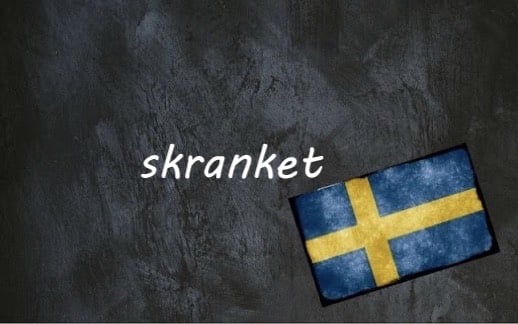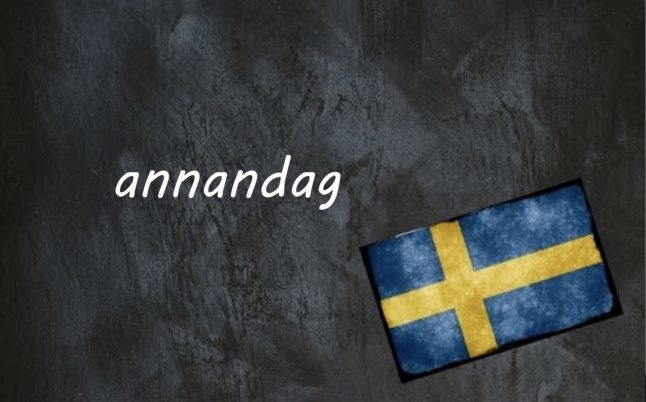A skrank is ‘a separating rail, especially in a public institution’ or ‘an upright standing construction by a staircase.’ A ‘handrail’ one could say, but not quite. In Swedish skrank would nearly never be used in that context, for that you would use the word räcke. Skrank instead refers to a domarskrank, a ‘judge’s rail’.
English speakers will know it as ‘the bar’, that is the bar by which a lawyer stands, which is also where the English word ‘barrister’ comes from.
Skranket primarily occurs in the expression inför skranket or sometimes as att träda inför skranket. Träda has the same root as ‘to tread’, and means ‘to walk,’ ‘to step,’ or ‘to appear.’ And inför means ‘in front of’. The meaning is then ‘to appear in front of the bar to be judged’.
You say ‘in front’ of the bar, even though in Swedish courts, the person on trial, the lawyers, and the judge, all sit behind it, with the bar separating the audience.
The reason for this is that until the new Swedish Code of Judicial Procedure came into effect in 1948, the bar used to be placed between the judge and the everyone else, including the lawyers and the accused.
Svensk ordbok, the dictionary published by the Swedish Academy, gives us the origin of the word. Skrank is attested to since 1624, and it really does feel like an old word to a Swedish ear. It comes from the Low German schrank, which meant ‘bars; cordon’.
The dictionary gives us another Swedish word, inskränkt, which has the same origin. Inskränkt means to be ‘narrow minded’ or ‘limited’, most often referring to someone’s intellectual capacities.
Try not to be inskränkt, and do your best to avoid att träda inför skranket. Ask your friends and colleagues if they know what a skrank is, chances are that the meaning of this unusual word is unknown to them, especially to the younger ones.
Example sentences:
Pelle, vet du vad ett skrank är?
Pelle, do you know what a ‘skrank’ is?
Vad händer med Pelle? Han ska träda inför skranket imorgon.
What’s up with Pelle? He’s going on trial tomorrow.
Villa, Volvo, Vovve: The Local’s Word Guide to Swedish Life, written by The Local’s journalists, is now available to order. Head to lysforlag.com/vvv to read more about it. It is also possible to buy your copy from Amazon US, Amazon UK, Bokus or Adlibris.



 Please whitelist us to continue reading.
Please whitelist us to continue reading.
Member comments